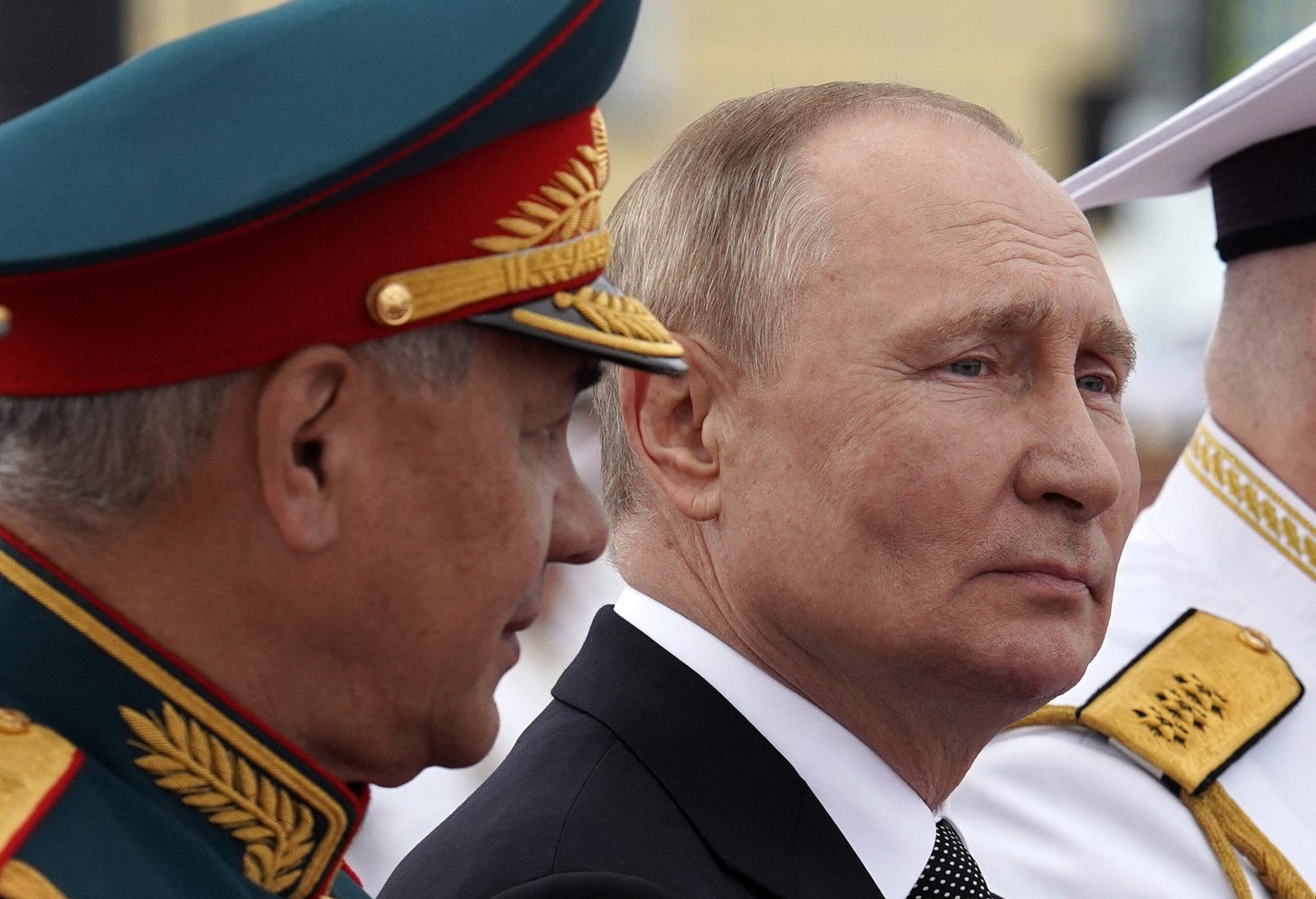Putin Thinks He Can Wait Out U.S. Support for Ukraine
Americans need to be reminded why the war matters for them.

[On the August 26, 2022 episode of The Bulwark’s “Beg to Differ” podcast, guest Eric Edelman and host Mona Charen discuss what the war in Ukraine means for U.S. national security.]
Mona Charen: You are one of the signatories of a piece, a really excellent piece, that ran a few days ago in the Hill with a number of generals, former diplomats, former defense establishment people who are urging that perhaps there has been an abundance of caution, maybe too much caution, in the way we’ve approached this war. And you argue that we should be trying to win it. Do you want to spell out your concerns?
Eric Edelman: Yes. In addition to that piece that appeared in the Hill, . . . I had a piece in The Bulwark with former Deputy Secretary of State Steve Biegun, former Assistant Secretary of State David Kramer, and former Deputy Assistant Secretary Defense Dan Fata, all arguing pretty much the same thing, which is that Ukraine potentially has a chance to win this conflict. But it can only win if the United States and the NATO alliance, which it leads, continue to support Ukraine as fully as possible, and particularly with military support.
Apparently, the administration heard this, because yesterday they unveiled a $3 billion package of assistance, which comes on top of one the week before that was not quite as large but pretty big as well. And this includes some 200,000-plus rounds of artillery munitions; additional GMLRS rounds for the HIMARS, the high mobility rocket system that we’ve supplied the Ukrainians with; as well as counter-battery radars, which had been something the Ukrainians have really needed in order to knock out Russian artillery.
But, the issue here is that the war has settled into a kind of stalemate. Russia’s made no appreciable gains in the last two months or so. And the prospect of victory requires the Ukrainians to continue to be able to wear down the Russian military so that they can ultimately either take back territory themselves in a counteroffensive, or break down the Russian military so it withdraws, as it did from the vicinity of Kyiv and Kharkiv, a couple of months ago, and thereby thwarting Putin’s strategic objectives.
And so, while I think all of us who signed that letter felt somewhat vindicated by the administration’s decision to go ahead with a $3 billion package, I still think they’re being a little bit more cautious than they ought to be. But, you know, they’ve done some things well, to be sure, including management of the alliance and holding the alliance together.
Charen: So there’s pretty broad support, I think, in the United States for continuing to support Ukraine. But for those who are doubting what the stakes are for us, for the United States in the world, can you address that a little bit? I mean, why do you think this is a national security matter for us?
Edelman: It’s a national security matter for us because we maintain important interests both in Europe and in East Asia. And, the war that President Putin unleashed on February 24 was a premeditated, unprovoked war of aggression. And if it is allowed to stand and if Ukraine can be swallowed up, it will only encourage Xi Jinping to look at the potential for military means to resolve the Taiwan question.
And it will, you know, make the world safe for any autocrat who wants to change boundaries by force. And so, in terms of global order, in terms of our interest in a stable Europe, in terms of our interest in a stable Indo-Pacific, the outcome of this war is crucially important to U.S. peace and prosperity. You can see the knock-on effects of this war in terms of food prices, the potential of food insecurity in the Global South, all sorts of knock on consequences.
And one deficiency of the Biden administration, I think, is that President Biden has not really spoken to the American people to outline all of this. In the good old days, back in the Cold War, and even in the post-Cold War, the president of the United States would have made an Oval Office address on national television, to try and lay out what’s at stake here.
One thing I worry about, Mona, is the $40 billion package that Congress passed this spring . . . both the economic support, budget support to the Ukrainian government and the military support that we’ve been talking about, will [by the late fall] have been exhausted. . . .
Right now, there is pretty robust support for support to Ukraine, as measured in polls. There have been two polls out this week, one from the Chicago Council on Foreign Affairs and one from, I think, Reuters, both which show fairly strong support—somewhat less support among Republicans than Democrats, but basically bipartisan broad support. But, unless the president articulates the case, and unless it appears that there’s a theory of victory, as opposed to this is just going to settle into, you know, another endless war, I worry that public support, over time, could start to unravel a little bit, and certainly, that’s what Vladimir Putin is counting on. He’s counting on the support in the United States unraveling, and he’s counting on support in Europe unraveling and transatlantic differences putting an end to the kind of support that we’ve seen for Ukraine heretofore.















